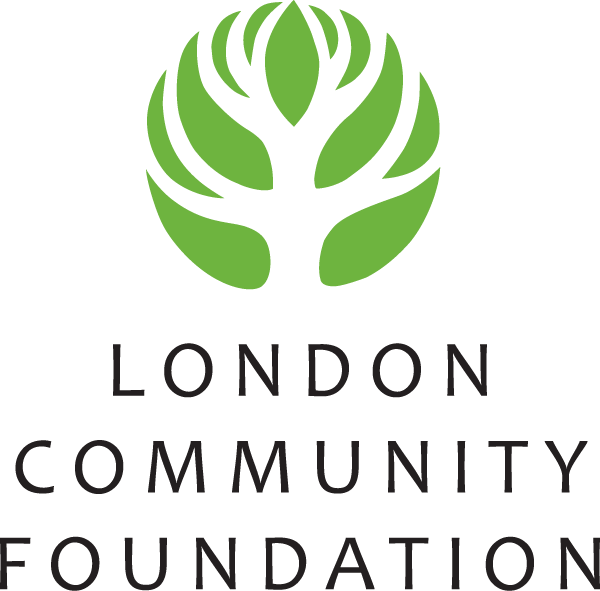Canada’s 2022 Budget Proposal - What does it mean for LCF?
Canada’s Proposed 2022 Budget - What does it mean for LCF?
Written by Vijay Venkatesan, Vice President, Finance & Operations at London Community Foundation
With the release of the Federal Budget for 2022-2023 there were two changes proposed that affect the not-for-profit sector: the registered charity disbursement quota was raised from 3.5% to 5%, and changes to the Income Tax Act were proposed to allow charities to make qualified disbursements to organizations that are not qualified donees, in furtherance of charitable purposes, subject to certain conditions. These proposed changes were both made following consultation with the charitable sector in 2021, including with Community Foundations of Canada.
Increased Disbursement Quota
Every year, charities are required to spend a minimum amount on charitable activities, calculated using the value of their investment assets. This is known as the “disbursement quota” and it ensures that charitable donations are being invested into our communities. The report states:
“This new, higher rate will boost support for the charitable sector while being set at a level that is sustainable, ensuring the continued availability of funding over the longer term.”
The proposal is to introduce a new graduated disbursement quota for charities, for the portion of property not used in charitable activities that exceeds $1 million. These changes will be effective for charities’ fiscal years that begin on or after January 1, 2023, and they’re set to be reviewed again in 2028. Canada Revenue Agency will also improve the collection of information from charities, including whether charities are meeting their disbursement quota, and information related to investments and donor-advised funds held by charities.
What does this mean for LCF?
LCF’s disbursement quota has averaged just over 5% across the last decade, a time period which has seen us grant a total of $33.5 million, so we don’t anticipate that this change will have a significant impact on us. In addition to our yearly granting, which typically exceeds $4 million, LCF’s Social Impact Fund loans and other initiatives help maximize our impact, meaning we invested a total of over $21.4 million into our community in 2021. We must keep in mind that the disbursement quota is only one of the tools in our toolbox!
We do think that raising the disbursement quota is a change for the better, though. While we and many other foundations in the community foundations movement have been actively granting over the 3.5% disbursement quota, a review of both public and private foundations by the CRA and other governing bodies identified many foundations under the 3.5%, with some large ones as low as 1%. We hope that this change will help public perception of all foundations, private and public alike, and will ensure that all foundations are actively working towards their mission.
While being mindful of capital preservation, we endeavour to maximize our granting through both donor-established funds and our unrestricted assets, which are managed by the board and grants committee. It is these unrestricted funds, such as the Strong Together Fund and LCF COVID-19 Response Fund, that allow us to utilize our community knowledge and make strategic grants to address our community’s most pressing issues as identified in our Vital Signs report.
Stronger Partnerships in the Charitable Sector
Under the Income Tax Act, qualified donees are organizations that can issue official donation receipts for gifts they receive from individuals and corporations. Registered charities can also make gifts to them. The report states:
“Canadian charities carry out a wide range of important work, including vital international development and relief activities around the world and providing direct support to Canadians here at home. Canada’s tax rules should support their work and minimize their administrative burdens, while still ensuring accountability for how charitable resources are used.”
The 2022 budget proposes to amend the Income Tax Act to allow a charity to provide its resources to organizations that are not qualified, provided that the charity meets certain requirements designed to ensure accountability. This is intended to implement the spirit of Bill S-216, the Effective and Accountable Charities Act, which is currently being considered by Parliament.
The main condition is that there must be a written agreement between the charity and grantee that requires any funds not used by the grantee for the purposes for which they were granted be returned to the charity. This would take effect on the legislation receiving Royal Assent.
What does this mean for LCF?
This is big news that we’re thrilled with! The Income Tax Act being amended to allow charities to make grants to non-qualified donees means we will be able to support not only charities, but also nonprofits that are providing valuable work in our community. This puts Canada more on par with most countries around the world.
Often there are smaller, grassroots organizations that we want to partner with to support their work, but it hasn’t been possible because they weren’t a registered charity or qualified donee. The Foundation is well versed in this area – through our Social Impact Fund, participating in the Investment Readiness program and Canada Healthy Communities Initiative, and informal partnerships to support granting in the past. We’re optimistic that this amendment will help in building relationships and partnering with more grassroots and equity-seeking groups to support the important work they do in our community.
To view the full 2022 budget, click here.
